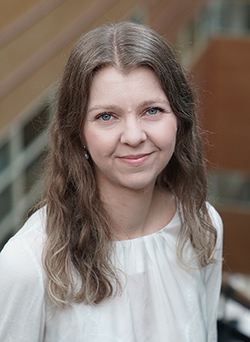About the project
A part of the background for this project is the need for for more programming pedagogics knowledge in primary and secondary education due to the political decision to include programming in the curriculum in multiple school subjects from 2020 in Norway. Moreover, we seek to enhance depth of learning through interdisciplinary semi-controlled inquiry and creative activities where students are allowed to utilize all senses to achieve a concretization of abstract theories and knowledge focusing on STEM-domains.
Objectives
This can, potentially, contribute to better educational differentiation for students with higher spatial abilities than verbal abilities and positively contribute to students' STEM motivation. Moreover, an identification instrument for differentiational level based on the operationalization of spatial ability mapped onto STEM skills is being developed. In parallel, resources for achieving optimal differentiation are developed, and their impact on learning will be investigated. As spatial abilities are closely correlated with STEM academic achievement and careers, this increased degree of differentiation could potentially increase STEM recruitment and achievement.
Additionally, there are issues with the gender gap in schools in several countries, with Norway having one of the most prominent male disfavourable gender gaps. Previous research has demonstrated that average female verbal abilities generally exceed that of their male counterparts, whereas average male spatial abilities generally exceed that of their female counterparts. Interventions that differentiate with regard to spatial abilities could facilitate the development of mastery, especially among male students. On the other hand, gender studies demonstrate a female preference of more concrete knowledge, whereas males prefer the more abstract version. Utilizing makerspace methods, the abstract terms will be tied to the concrete physical objects, and female motivation for STEM could potentially be positively affected – which will be investigated.
Method
This project will compare two different approaches to programming and STEM instruction. One method is based on makerspace methods and the other a more common approach of "screen programming".
The intervention will be piloted in 21/22, and the larger RCT will be conducted in the 22/23 school year, where the randomization is on class level.
Background
- The duration of the PhD-project is four years, and is due to end in January 2025
- Main supervisor: Imac Maria Zambrana, Department of special needs education, UiO
Financing
This work is supported by the Norwegian Research Council under grant number 308895 and Viken County
(All photos by Ellen Egeland Flø)
/bilder/illustrasjon-2.png)
/bilder/illustrasjon-3.png)
/bilder/illustrasjon-1.png)
/bilder/illustrasjon-4.png)
/bilder/1200x675-forsidebilde.jpg)

